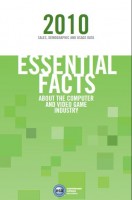This is a post for all those broadband fans out there who want to talk about something today besides the Federal Communication’s Commission’s decision to take comments on which legal classification it should use to regulate broadband.
A recent FCC survey revealed that 80 percent of home broadband users do not know the speed of their broadband service. I can easily imagine how this statistic could be spun to “prove” that consumers are woefully uninformed and the broadband market must be plagued with “market failures” because consumers do not have even the basic information they need to make intelligent decisions.
Before we go down that road, let me explain, based on my own experience, why this is a non-issue.
I’m part of that 80 percent. I do not know the speed of my broadband service at home. I know that when I signed up several years ago, I selected the slowest and cheapest broadband speed the provider offered. I also know that this speed is still plenty fast for anything we need to do at home (and usually faster than the speed at my university office). I remain blissfully ignorant of the actual speed, even though it would be very easy for me to find out by looking at the materials I received when I signed up or checking the provider’s web site online.
In economic jargon, I am “rationally ignorant” of my home broadband speed. I don’t know (or remember) the speed, but to me this information is not worth the 45 seconds it would take me to find out. And that also means any FCC initiatives to “improve consumer information” or “educate” me about it will not, for me, be worth the time and money the FCC might spend on them.
If some of our Internet applications were not working in a satisfactory manner, we would probably do an online speed test, check to see what other speeds our provider offers, and check offers from competing providers. All of these steps would be easy and would require no FCC policy initiatives to facilitate (beyond making sure that the providers aren’t lying about what speeds they will provide).
I’m probably not alone. The same survey reveals that 50 percent of Americans are satisfied with their broadband speeds, and another 41 percent are “somewhat satisfied.” So, 91 percent of consumers are more or less satisfied, even though 80 percent don’t know their speeds.
It would have been quite useful and instructive if the FCC survey had included an additional question: “Is your broadband speed adequate for the Internet applications you want to use?” And then cross-tabulate the responses with the responses on knowledge of broadband speed. Wanna bet that a substantial majority of people who do not know their speed would also have said that it is adequate?
Surely there are some broadband customers who use applications that require specific (fast) speeds, and these customers have a greater need to know what speed they’re receiving. That’s why providers tell prospective customers what speed tiers they offer. And that’s why one can find multiple web-based speed tests. This information is not hard to find if you want it.
But for some of us, it just ain’t worth it. And shame on anyone who tries to use my willful ignorance as an excuse for some new policy initiative. Rational ignorance is bliss, and I’m a bliss-ter.
 On this week’s episode of the podcast, Adrian Johns, professor in the Department of History at the University of Chicago, expert on the history of science and the history of the book, and author of the new book, Piracy: The Intellectual Property Wars from Guttenberg to Gates, discusses the history of intellectual property and piracy. He discusses origins of copyright law in London, the first pirates, and today’s digital piracy. He also addresses the future of books and potential tipping points that could prompt changes in copyright law, citing the Google Books project and pharmaceuticals in the developing world.
On this week’s episode of the podcast, Adrian Johns, professor in the Department of History at the University of Chicago, expert on the history of science and the history of the book, and author of the new book, Piracy: The Intellectual Property Wars from Guttenberg to Gates, discusses the history of intellectual property and piracy. He discusses origins of copyright law in London, the first pirates, and today’s digital piracy. He also addresses the future of books and potential tipping points that could prompt changes in copyright law, citing the Google Books project and pharmaceuticals in the developing world.


 The Technology Liberation Front is the tech policy blog dedicated to keeping politicians' hands off the 'net and everything else related to technology.
The Technology Liberation Front is the tech policy blog dedicated to keeping politicians' hands off the 'net and everything else related to technology.